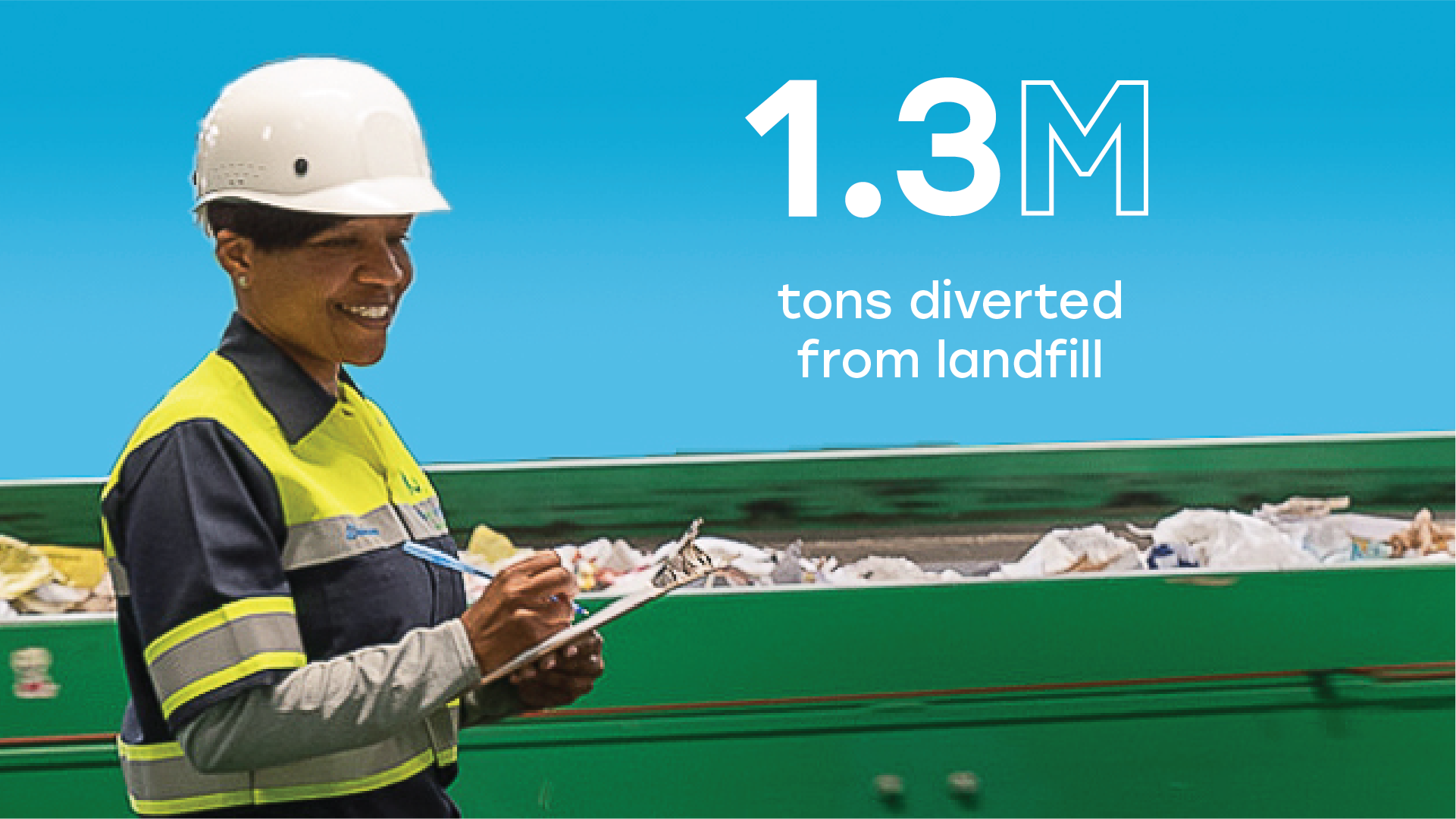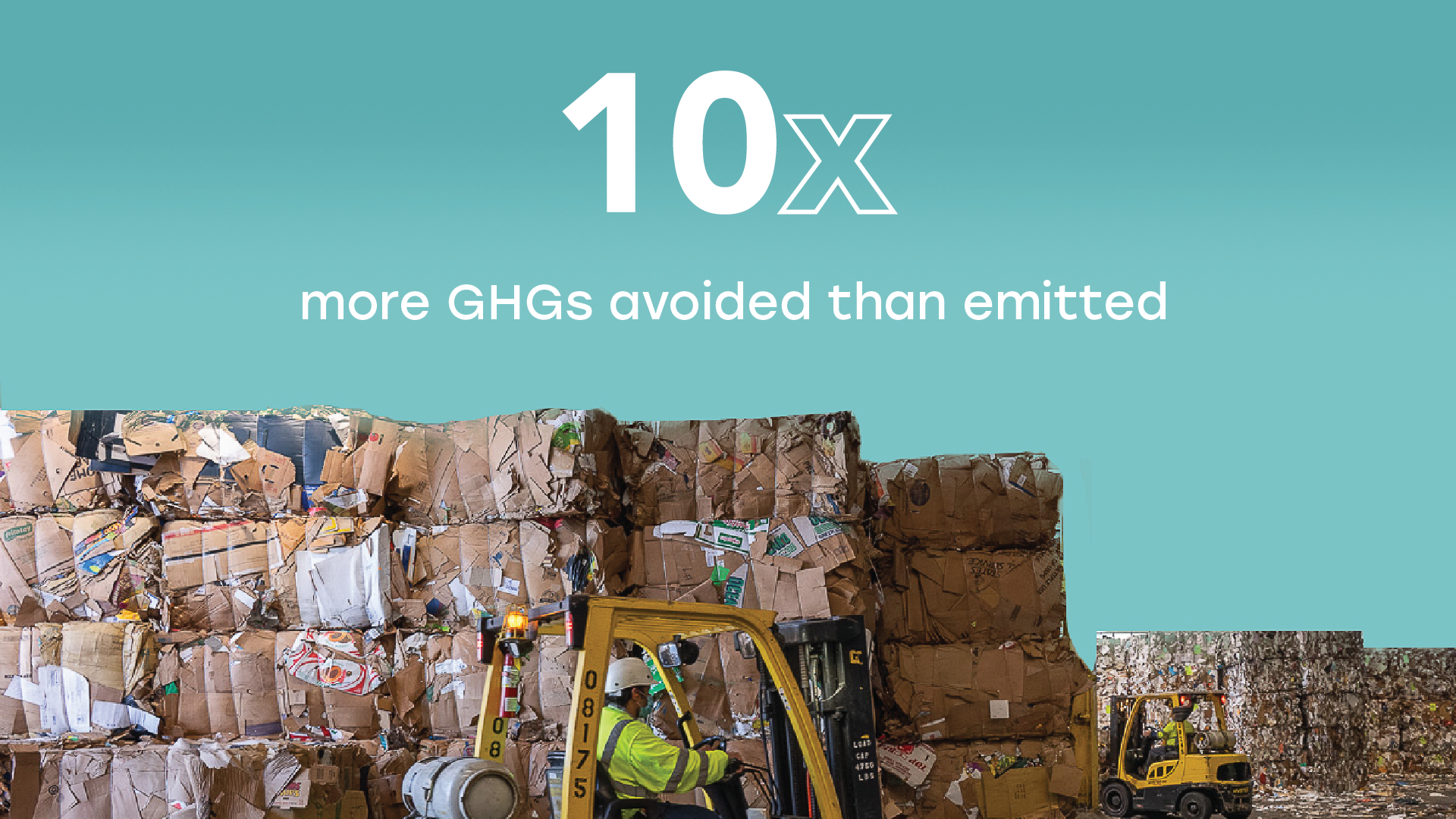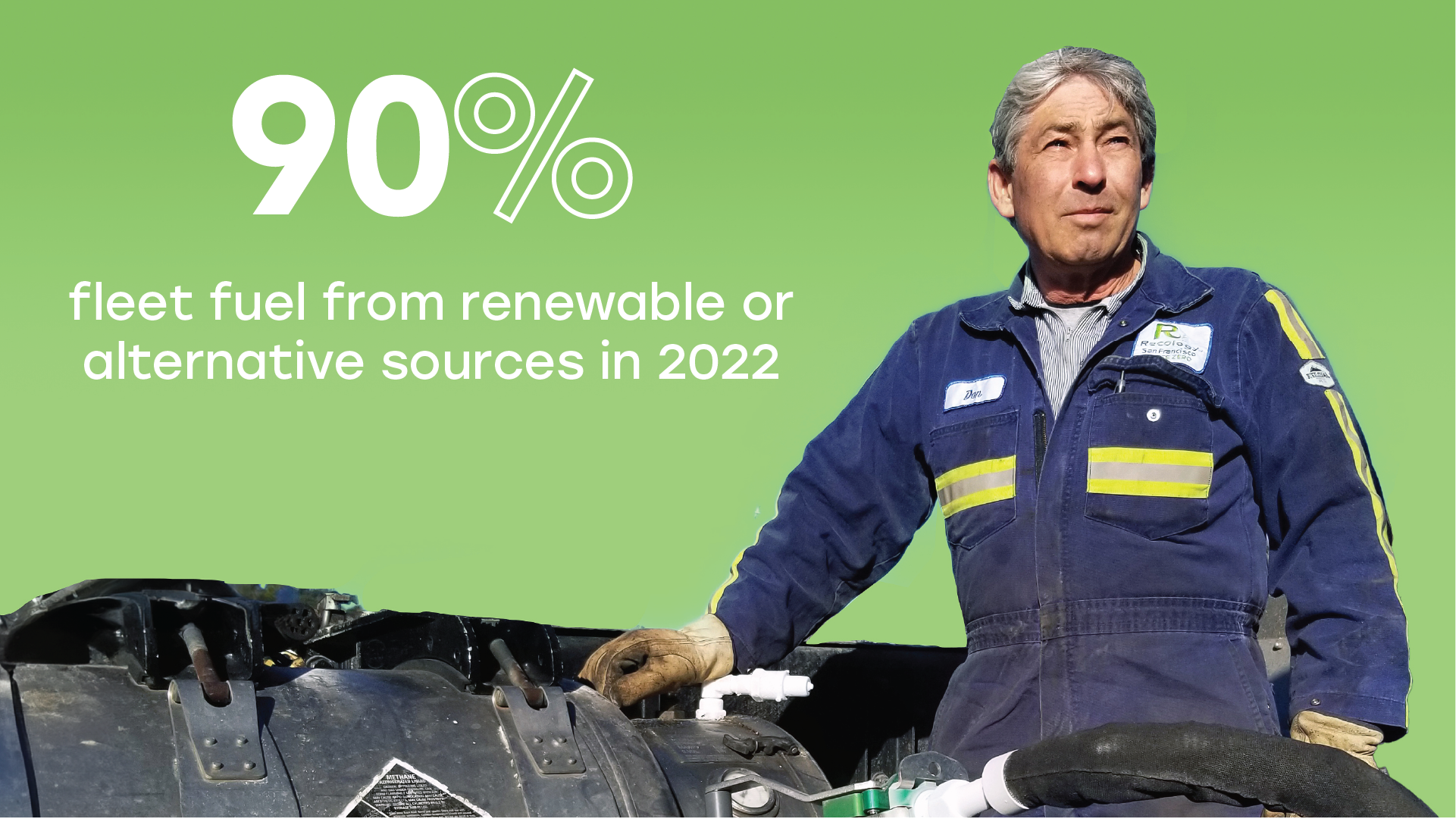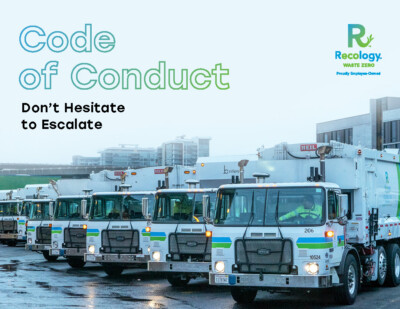View 2023 Sustainability Report
At Recology, we’re not just adapting to a sustainable future — we’re actively shaping it.
Sustainability at Recology can be found at the intersection of our environmental, social, and governance values—where our initiatives to protect our planet and empower our people meet our dedication to upholding the highest standards of corporate responsibility.
Our 2023 Sustainability Report highlights these initiatives and showcases our company-wide commitments to decreasing greenhouse gas emissions, supporting our diverse employee-owners, and partnering with local communities to advance resource recovery and achieve our shared goals.
Advancing a sustainable future in service to our Planet.
Recology is committed to doing our part to maximize resource recovery, decrease our greenhouse gas emissions, and support thriving local ecosystems. Every behavioral change—from composting food scraps to adopting renewable fuels—matters.

Resource Recovery
We’re combating climate change and supporting the circular economy by diverting material from the landfill.

GHG Avoidance
We’re committed to doing our part to decrease our greenhouse gas emissions and support thriving local ecosystems.

Fuel Goal Achievement
We’re focused on our transition from traditional fossil fuels to renewable and alternative fuels.
Fostering shared success in service to our People.
As Recology continuously builds and reimagines our business, we make our people our priority. Our employee-ownership model fosters a unique company culture that guides how we support our workforce, serve our customers and community stakeholders, and care for the natural environment.

Employee-Owned
Recology is the largest 100% employee-owned company in the resource recovery industry.

Safety-First Culture
Recology’s top priority is ensuring the health and safety of our employee-owners and the communities we serve.

Community Engagement
Recology prioritizes education and outreach within our communities in service of our resource recovery efforts.

Promoting Diversity
In 2022, 68% of promotions went to employee-owners who identify as women or members of an ethnic minority group, or both.
Governing by our principles in service to our Process.
Recology adheres to ethical conduct in every aspect of our work because it is the right thing to do, it fosters a sustainable business, and it best serves our communities and employee-owners. We’ve developed a comprehensive compliance program which will guide our employee-owners across every level of the company, from the sorting line to the boardroom.
Anchored by our Code of Conduct, this program provides our employee-owners with the training and tools they need to perform their roles with integrity and comply with all legal and ethical obligations. In doing so, the program encourages a culture of teamwork and accountability, further reinforcing our commitment to the communities we serve.
Check out our compliance page to learn more about our Code of Conduct, Ethics & Compliance hotline, and more.
